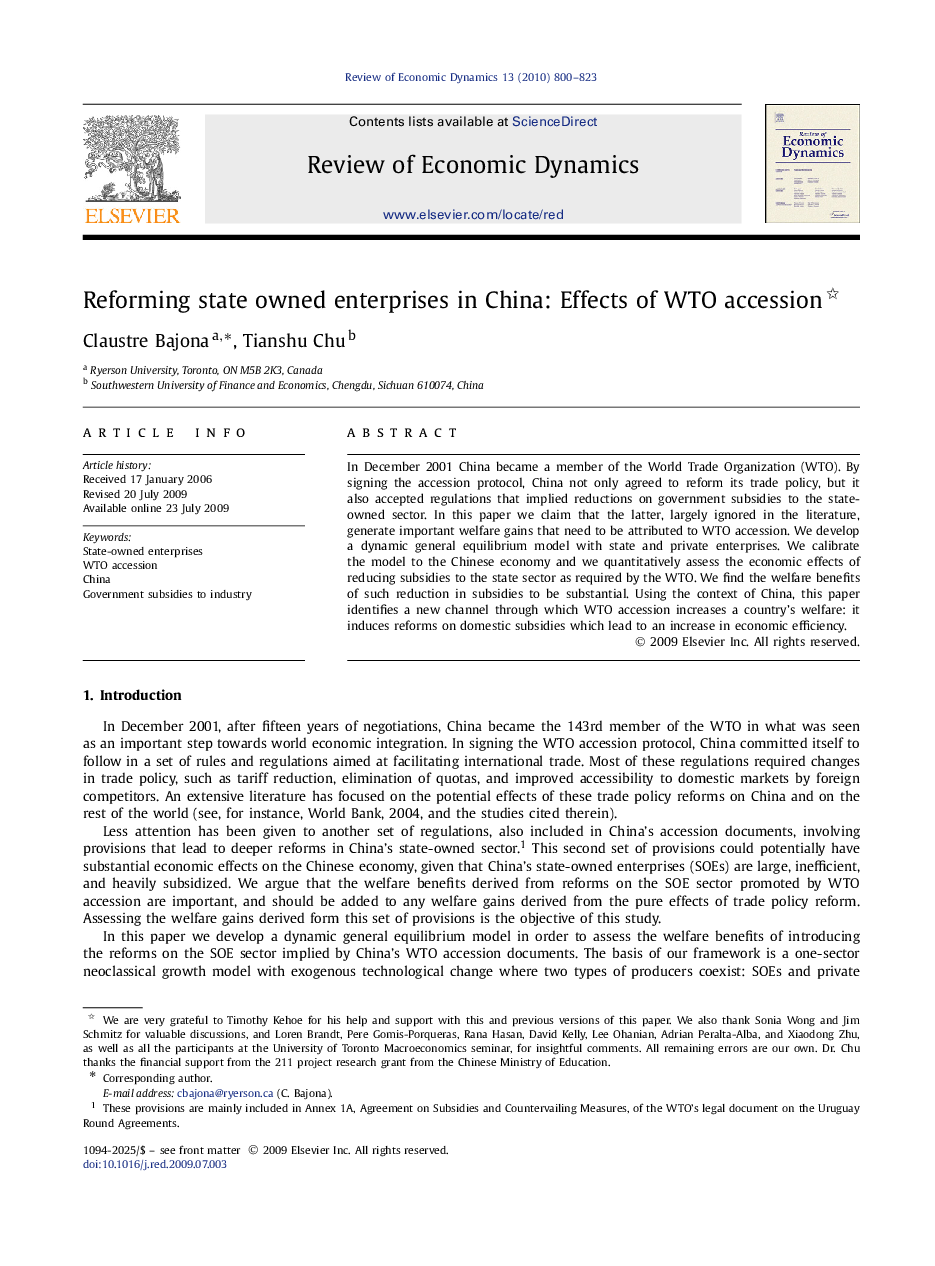| Article ID | Journal | Published Year | Pages | File Type |
|---|---|---|---|---|
| 985546 | Review of Economic Dynamics | 2010 | 24 Pages |
In December 2001 China became a member of the World Trade Organization (WTO). By signing the accession protocol, China not only agreed to reform its trade policy, but it also accepted regulations that implied reductions on government subsidies to the state-owned sector. In this paper we claim that the latter, largely ignored in the literature, generate important welfare gains that need to be attributed to WTO accession. We develop a dynamic general equilibrium model with state and private enterprises. We calibrate the model to the Chinese economy and we quantitatively assess the economic effects of reducing subsidies to the state sector as required by the WTO. We find the welfare benefits of such reduction in subsidies to be substantial. Using the context of China, this paper identifies a new channel through which WTO accession increases a country's welfare: it induces reforms on domestic subsidies which lead to an increase in economic efficiency.
